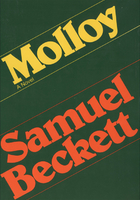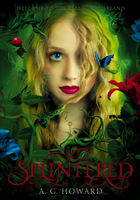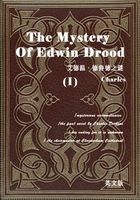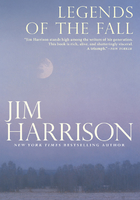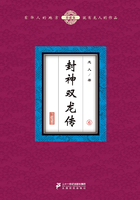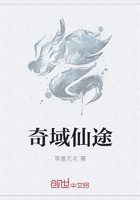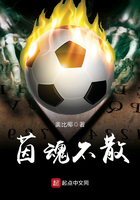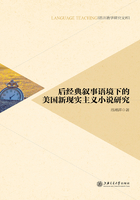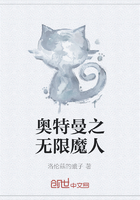As they were leaving the Mumbanyo, someone threw something at them. It bobbed a few yards from the stern of the canoe. A pale brown thing.
'Another dead baby,' Fen said.
He had broken her glasses by then, so she didn't know if he was joking.
Ahead lay the bright break in the curve of dark green land where the boat would go. She concentrated on that. She did not turn around again. The few Mumbanyo on the beach were singing and beating the death gong for them, but she did not look at them a last time. Every now and then when the four rowers-all standing, calling back to their people or out to other canoes-pulled at the same time, a small gust of wind struck her damp skin. Her lesions prickled and tightened, as if hurrying to heal in the brief dry air. The wind stopped and started, stopped and started. She could feel the gap between sensation and recognition of it, and knew the fever was coming on again. The rowers ceased rowing to stab a snake-necked turtle and haul it into the boat, still writhing. Behind her, Fen hummed a dirge for the turtle, too low for anyone but her to hear.
A motorboat was waiting for them where the Yuat met the Sepik. There were two white couples on board with the driver, a man named Minton whom Fen knew from Cairns. The women wore stiff dresses and silk stockings, the men dinner jackets. They did not complain about the heat, which meant they lived here, the men overseeing either plantations or mines, or enforcing the laws that protected them. At least they weren't missionaries. She couldn't have tolerated a missionary today. One woman had bright gold hair, the other eyelashes like black ferns. Both carried beaded purses. The smooth white of their arms looked fake. She wanted to touch the one closer to her, push up her sleeve and see how far up the white went, the way all her tribes wherever she went needed to touch her when she first arrived. She saw pity in the women's gazes as she and Fen boarded with their dirty duffels and their malarial eyes.
The engine when it started up was so loud, so startling, that her hands rose to her ears like a child's. She saw Fen flinch to do the same and she smiled reflexively, but he did not like that she'd noticed and moved away from her to talk to Minton. She took a seat on the bench at the stern with the women.
'What's the occasion?' she asked Tillie, the gold-haired one. If she'd had that hair, the natives would never have stopped touching. You couldn't go into the field with hair like that.
They both managed to hear her over the engine and laughed.
'It's Christmas Eve, silly.'
They had been drinking already, though it couldn't have been much past noon, and it would have been easier to be called silly if she hadn't been wearing a filthy cotton shift over Fen's pajamas. She had the lesions, a fresh gash on her hand from a sago palm thorn, a weakness in her left ankle, the old Solomon neuritis in her arms, and an itchy sting between her toes that she hoped wasn't another batch of ringworm. She could normally keep the discomfort at bay while she was working but it kicked in hard watching these women in their silks and pearls.
'Do you think Lieutenant Boswell will be there?' Tillie asked the other woman.
'She thinks he's divine.' This one, Eva, was taller, stately, bare-fingered.
'I do not. And so do you,' Tillie said.
'But you are a married woman, my dear.'
'You can't expect someone to stop noticing people the minute the ring goes on,' Tillie said.
'I don't. But your husband certainly does.'
In her mind Nell was writing:
-ornamentation of neck, wrists, fingers
-paint on face only
-emphasis on lips (dark red) and eyes (black)
-hips emphasized by cinching of waist
-conversation competitive
-the valued thing is the man, not having one, necessarily, but having the ability to attract one
She couldn't stop herself.
'Have you been studying the natives?' Tillie asked her.
'No, she's come from the Twilight Ball at the Floating Palais.' Eva had the heavier Australian accent, the most like Fen's.
'I have,' she said. 'Since July. I mean, the July before this last one.'
'A year and a half up that little tributary somewhere?' Tillie said.
'Good God,' Eva said.
'A year first in the mountains north of here with the Anapa,' Nell said. 'And then another five and a half months with the Mumbanyo up the Yuat. We left early. I didn't like them.'
'Like them?' Eva said. 'I would think keeping your head attached to your neck might be a more reasonable goal.'
'Were they cannibals?'
It was not safe to give them an honest answer. She did not know who their men were. 'No. They fully understand and abide by the new laws.'
'They're not new,' Eva said. 'They were issued four years ago.'
'I think to an ancient tribe it all feels new. But they obey.' And blame all their bad luck on the lack of homicide.
'Do they talk about it?' Tillie said.
She wondered why every white asked about cannibalism. She thought of Fen when he returned from the ten-day hunt, his sad attempt to keep it from her. I tasted it, he finally blurted out. And they're right, it does taste like old pig. It was a joke the Mumbanyo had, that the missionaries had tasted like old pig.
'They speak of it with great longing.'
The two women, even long brazen Eva, shrank a bit.
And then Tillie asked, 'Did you read the book about the Solomon Islands?'
'Where all the children were fornicating in the bushes?'
'Eva!'
'I did.' And then, Nell couldn't help herself, 'Did you like it?'
'Oh I don't know,' Tillie said. 'I don't understand what all the fuss is about.'
'Is there fuss?' Nell said. She'd heard nothing about its reception in Australia.
'I'll say.'
She wanted to ask by whom and about what, but one of the men was coming around with an enormous bottle of gin, refilling glasses.
'Your husband said you wouldn't want any,' he said to her apologetically, for he did not have a glass for her.
Fen had his back to her but she could see the expression on his face just from the way he was standing with his back arched and his heels slightly lifted. He would be compensating for his wrinkled clothing and his odd profession with a hard masculine glare. He would allow himself a small smile only if he himself had made the joke.
Fortified by several sips, Tillie continued her inquiry. 'And what will you write about these tribes?'
'It's all a jumble in my head still. I never know anything until I get back to my desk in New York.' She was aware of her own impulse to compete, to establish dominance over these clean, pretty women by conjuring up a desk in New York.
'Is that where you're headed now, back to your desk?'
Her desk. Her office. The diagonal window that looked out onto Amsterdam and 118th. Distance could feel like a terrible claustrophobia at times. 'No, we're going to Victoria next, to study the Aborigines.'
Tillie pulled a pout. 'You poor thing. You look beat up enough as it is.'
'We can tell you right here all you need to know about the Abos,' Eva said.
'It was just this last five months, this last tribe.' She could not think how to describe them. She and Fen had not agreed on one thing about the Mumbanyo. He had stripped her of her opinions. She marveled now at the blankness. Tillie was looking at her with a drunk's depthless concern. 'Sometimes you just find a culture that breaks your heart,' she said finally.
'Nellie,' Fen called at her. 'Minton says Bankson is still here.' He waved his hand upriver.
Of course he is, she thought, but said, 'The one who stole your butterfly net?' She was trying to be playful.
'He didn't steal anything.'
What had he said exactly? It had been on the ship coming home from the Solomons, in one of their first conversations. They'd been gossiping about their old professors. Haddon liked me, Fen had said, but he gave Bankson his butterfly net.
Bankson had ruined their plans. They'd come in '31 to study two New Guinea tribes. But because Bankson was on the Sepik River, they'd gone north, up the mountains to the Anapa, with the hope that when they came back down in a year he'd be gone and they'd have their pick of the river tribes, whose less isolated cultures were rich with artistic, economic, and spiritual traditions. But he was still there, so they'd gone in the opposite direction from him and the Kiona he studied, south down a tributary of the Sepik called the Yuat, where they'd found the Mumbanyo. She had known that tribe was a mistake after the first week, but it took her five months to convince Fen to leave.
Fen stood beside her. 'We should go and see him.'
'Really?' He'd never suggested this before. Why now, when they'd already made arrangements for Australia? He had been with Haddon, Bankson, and the butterfly net in Sydney four years ago, and she didn't think they had liked each other much.
Bankson's Kiona were warriors, the rulers of the Sepik before the Australian government had cracked down, separating villages, allotting them parcels of land they did not want, throwing resisters in jail. The Mumbanyo, fierce warriors themselves, told tales of the Kiona's prowess. This was why he wanted to visit Bankson. The tribe is always greener on the other side of the river, she often tried to tell him. But it was impossible not to be envious of other people's people. Until you laid it all out neatly on the page, your own tribe looked a mess.
'Do you think we'll see him in Angoram?' she asked. They could not go traipsing after Bankson. They'd made the decision to go to Australia. Their money wouldn't last much more than half a year, and it would take several weeks to get settled among the Aborigines.
'Doubt it. I'm sure he steers clear of the government station.'
The speed of the boat was disorienting. 'We need to get that pinnace to Port Moresby tomorrow, Fen. The Gunai are a good choice for us.'
'You thought the Mumbanyo were a good choice for us, too, when we headed there.' He rattled the ice of his empty glass. He looked like he had more to say, but he walked back to Minton and the other men.
'Been married long?' asked Tillie.
'Two years in May,' Nell said. 'We had the ceremony the day before we came out here.'
'Swish honeymoon.'
They laughed. The bottle of gin came round again.
For the next four and a half hours Nell watched the dressed-up couples drink, tease, flirt, wound, laugh, apologize, separate, reintegrate. She watched their young uneasy faces, saw how thin the layer of self-confidence was, how easily it slipped off when they thought no one was looking. Occasionally Tillie's husband would raise his arm to point out something on land: two boys with a net, a quoll hanging like a melting sack from a tree, an osprey coasting to its nest, a red parrot mocking their engine. She tried not to think about the villages they were passing, the raised houses and the fire pits and the children hunting for snakes in the thatch with spears. All the people she was missing, the tribes she would never know and words she would never hear, the worry that they might right now be passing the one people she was meant to study, a people whose genius she would unlock, and who would unlock hers, a people who had a way of life that made sense to her. Instead she watched these Westerners and she watched Fen, speaking his hard talk to the men, aggressively pressing them about their work, defensively responding when they asked about his, coming to seek her out then punishing her with a few cutting words and an abrupt retreat. He did this four or five times, dumping his frustration on her, unaware of his own pattern. He was not through punishing her for wanting to leave the Mumbanyo.
'He's handsome, isn't he, your husband,' Eva said, when no one else could hear. 'I bet he cleans up well.'
The boat slowed, the water glowed salmon pink in the sunset, and they were there. Three dock boys, dressed in white pants, blue shirts, and red caps came running out from the Angoram Club to tie up the boat.
'Lukaut long,' Minton barked at them in pidgin. 'Isi isi.'
To each other they spoke in their tribal language, Taway most likely. To the disembarking passengers they said, 'Good evening,' in a crisp British accent. She wondered how far their knowledge of English extended.
'How are you this evening?' she asked the biggest boy.
'Fine, thank you, Madame.' He reminded her of their Anapa shoot boy, with his easy confidence and willingness to smile.
'It's Christmas Eve, I hear.'
'Yes, Madame.'
'Do you celebrate it?'
'Oh yes, Ma'am.'
The missionaries had gotten to them.
'And what are you hoping for?' she asked the second biggest.
'A fishing net, Ma'am.' He tried to keep the sentence brief and dispassionate like the other boy's, but he burst out, 'Like the one my brother has got last year.'
'And the first thing he catched were me!' the littlest cried out.
All three boys laughed, their teeth bright white. At their age most Mumbanyo boys no longer had many teeth, having lost them to rot or fights, and the ones that remained were stained scarlet by the betel nut they chewed.
Just as the big boy began to explain, Fen called to her from the ramp. The white couples, already up on the land, seemed to be laughing at them, at the woman in the filthy men's pajamas, trying to talk to the natives, at the gaunt bearded Aussie, who may or may not clean up well, teetering with their bags, calling for his wife.
She told the boys to have a merry Christmas, which they thought was funny, and they wished her the same. She would have liked to squat on that dock with those boys all night.
Fen, she saw, was not mad. He shifted both bags onto his left shoulder and offered her his right arm as if she too were wearing an evening dress. She slipped her left arm through and he clamped down. The lesion she had there stung from the pressure.
'It's Christmas Eve for Christ's sake. Must you always be working?' But his voice was teasing now, almost apologetic. We are here, his arm tight around hers said. It is over with the Mumbanyo. He kissed her and this too made the pain flare but she didn't complain. He didn't like her strong, nor did he like her weak. Many months ago he'd grown tired of sickness and sores. When his fever rose, he took forty-mile hikes. When he had a thick white worm growing beneath the skin of his leg, he cut it out himself with a penknife.
They were given a room on the second story. Music from the club's dining room below vibrated in the floorboards.
She touched one of the twin beds. It was made up with stiff white sheets and a fat pillow. She pulled the top sheet from its tight bind and got in. It was just an old narrow army cot but it felt like a cloud, a clean smooth starched cloud. She felt sleep, the old heavy kind, the kind of her childhood, come for her.
'Good idea,' Fen said, taking off his shoes. There was a whole bed for him, too, but he pushed his way in beside her and she had to turn toward him on her side so as not to fall off. 'Time to procreate,' he said in a singsong.
His hands slid down the back of her cotton pants, grabbed the flesh of her bottom, and pressed her groin to his. It reminded her of how she used to smack her paper dolls together after she had outgrown them but had not yet put them away. But it didn't work, so he took her hand and brought it down and once she had gripped him fully, he covered her hand with his own and brought it up and down in a rhythm she knew well but he would never let her try on her own. His breathing quickly became fast and labored, but it took a long time for the penis to show even the slightest sign of stiffness. It flopped beneath their two hands like a jellyfish. It wasn't the right time, anyway. She was about to get her period.
'Shit,' Fen muttered. 'Bloody hell.'
The anger seemed to send a surge of something down there, and suddenly it shot out of their hands, huge, hard, and flushed purple.
'Stick it in,' Fen said. 'Stick it in right now.'
There was no reasoning with him, no speaking of dryness or timing or oncoming fevers or lesions that would open when rubbed against the linen sheets. They would leave bloody stains and the Taway maids would think it was menstrual blood and have to burn them for superstitious reason, these beautiful fresh clean sheets.
She stuck it in. The small sections of her flesh that did not hurt were numb if not dead. Fen pumped against her.
When it was over, he said, 'There's your baby.'
'At least a leg or two,' she said, as soon as she could trust her voice.
He laughed. The Mumbanyo believed it took many times to make a whole baby. 'We'll get to the arms later tonight.' He swiveled his face to hers and kissed her. 'Now let's get ready for that party.'
There was an enormous Christmas tree in the far corner. It looked real, as if they'd shipped it from New Hampshire. The room was crowded with men mostly, owners and overseers, river drivers and government kiaps, crocodile hunters with their smelly taxidermists, traders, smugglers, and a few hard-drinking ministers. The pretty women from the boat seemed to glow, each at the center of her own ring of men. Taway servants wore white aprons and carried trays of champagne. They had long limbs and long, narrow noses, unmarked by piercings or scarring. They were, she guessed, a nonwarring people like the Anapa. What would happen if they ever put a governor's station down the Yuat River? You couldn't tie a white apron on a Mumbanyo. You'd get your neck slit if you tried.
She took a glass from a tray held out to her. On the other side of the room, beyond the tray and the arm of the Taway man who held it, she saw a man beside the tree, a man quite possibly taller than the tree, touching a branch with his fingers.
Without her glasses, my face would have been little more than a pinkish smudge among many, but she seemed to know it was me as soon as I lifted my head.

